Crop Trust at UNFCCC COP23
The Crop Trust hosts a series of side events at COP23 for setting an agenda for transforming agricultural development in the face of climate change.
Both part of the cause of climate change, but also part of the solution,...

The Crop Trust hosts a series of side events at COP23 for setting an agenda for transforming agricultural development in the face of climate change.
Both part of the cause of climate change, but also part of the solution, agriculture is central to any debate on global warming and extreme weather events. The interactions between the agricultural sector and climate change have undeniable implications for both global food security and our environment.
“Agriculture Advantage: The case for climate action in agriculture” is a collaboration effort between different organizations with the same mission to transform agricultural development in the face of climate change. The event aims to articulate the different dimensions of climate actions in the agricultural sector, and links multiple side events that will be held during the 2 weeks of COP23 into a single theme.
The Crop Trust is hosting four of these events: The Opening and Context Setting Event, the Gender Advantage, the Policy Advantage, and the Breeding Advantage. Additionally, we will be hosting a Food Forever side event: Food Biodiversity for Greater Climate Resilience.
The Events
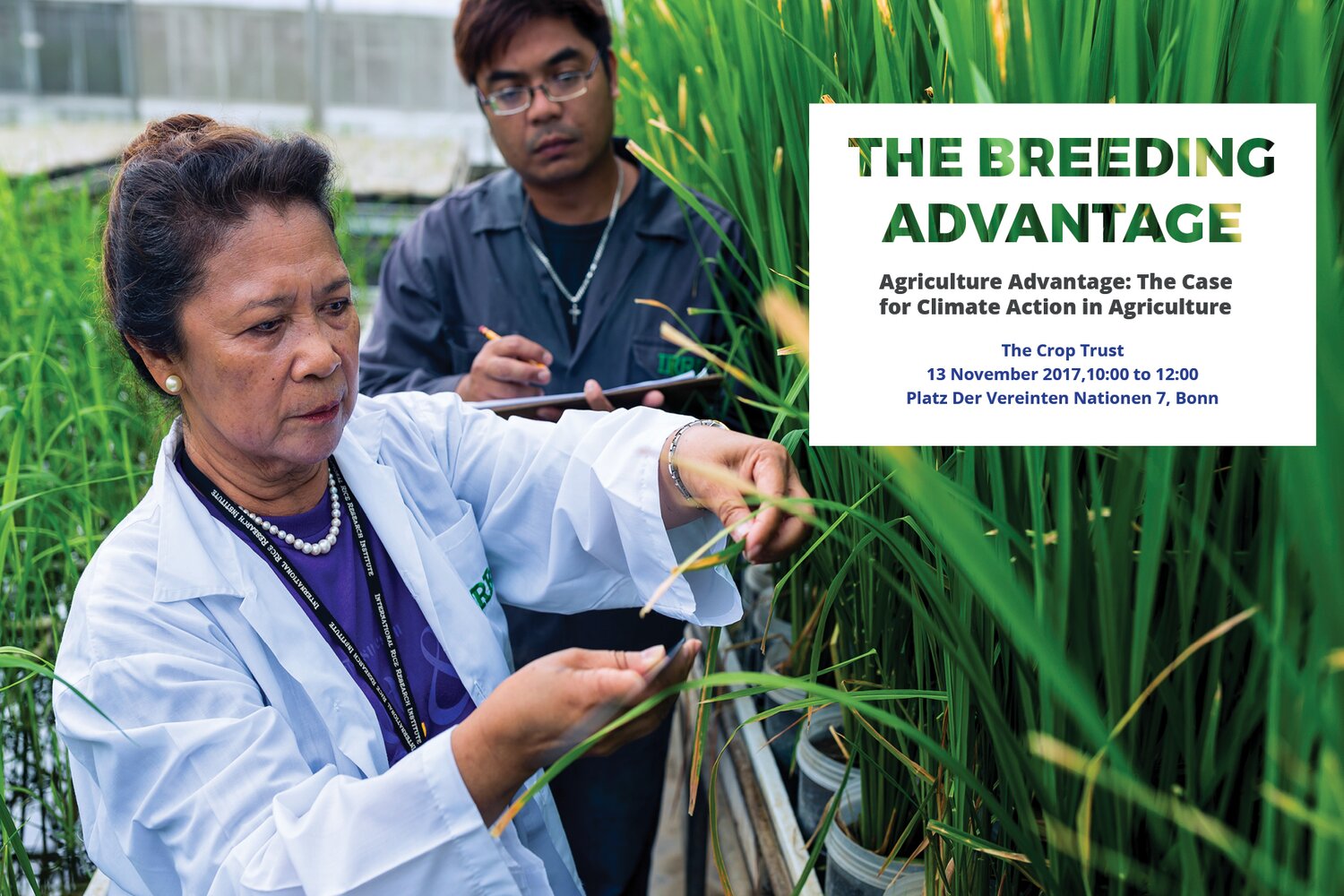
The IPCC’s 5th assessment report found that even if current mitigation commitments and pledges are fully implemented, there is a 20% likelihood of exceeding 4°C by 2100. The report also found that global temperature increases of 4°C, combined with the growing demand for food would threaten global food security. While efforts are underway to mitigate emissions and adapt to a 2°C increase in temperature, it is important to explore options to transform agricultural systems in the face of greater increases in temperature. Genetic resources for food and agriculture, will play a key role in helping adapt to global temperature increases. This event aims to explore the role of genetic resources in climate change adaptation, specifically identifying the current state of play, capturing best practices, and developing a research and action agenda on the role of genetic resources in securing global food security in a a 4°C warmer world.
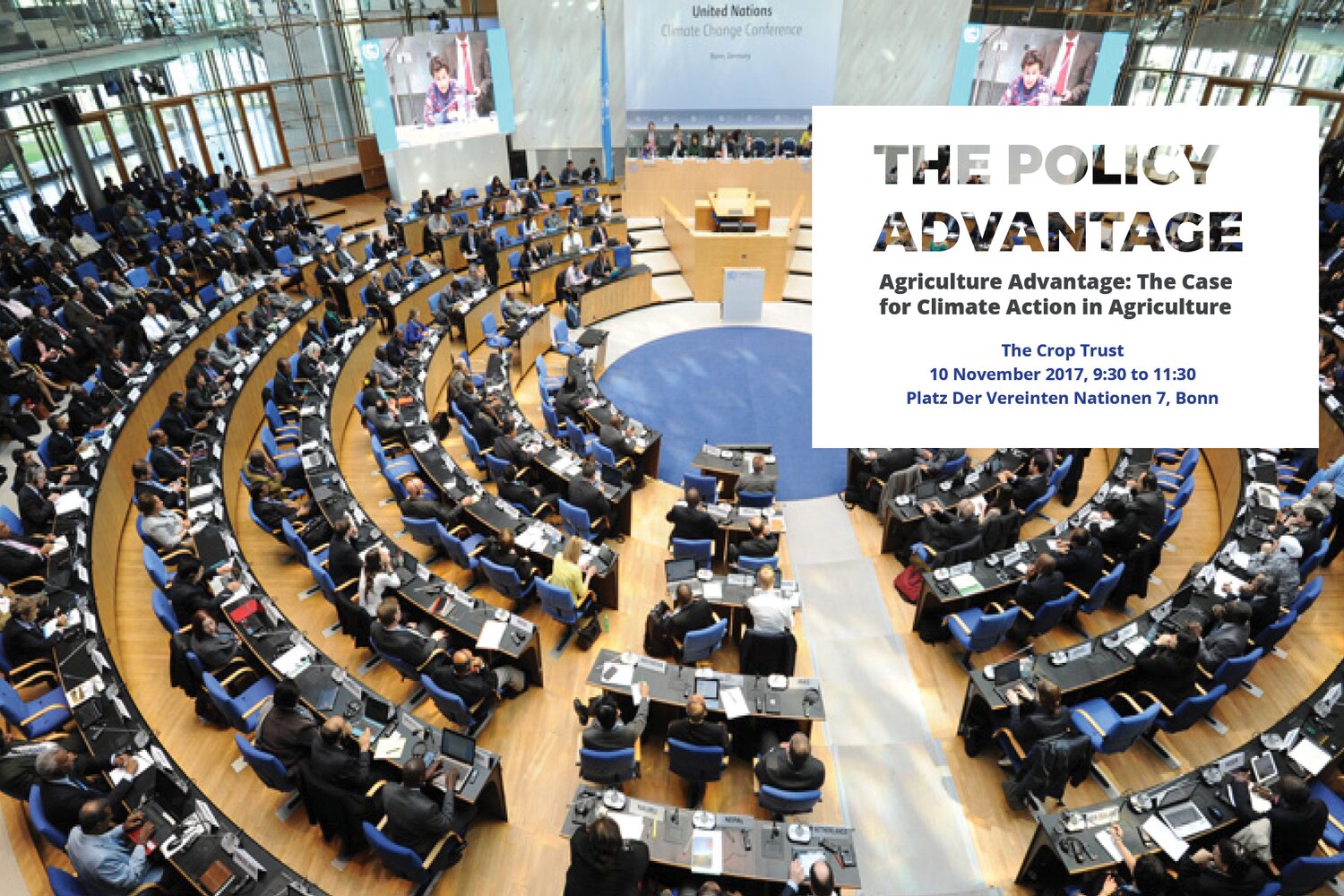
The objective of this side-event is to uncover the lessons learned through CSA Profiling, policy hubs, and other science-policy engagements, to improve decision-making in a world often characterized by increasingly complex policy issues as well as information overload. This event targeted at government officials, development organizations, researchers, the private sector and civil society, aims to highlight key reflections that can be drawn from specific engagements globally for promoting CSA in policies and investments.
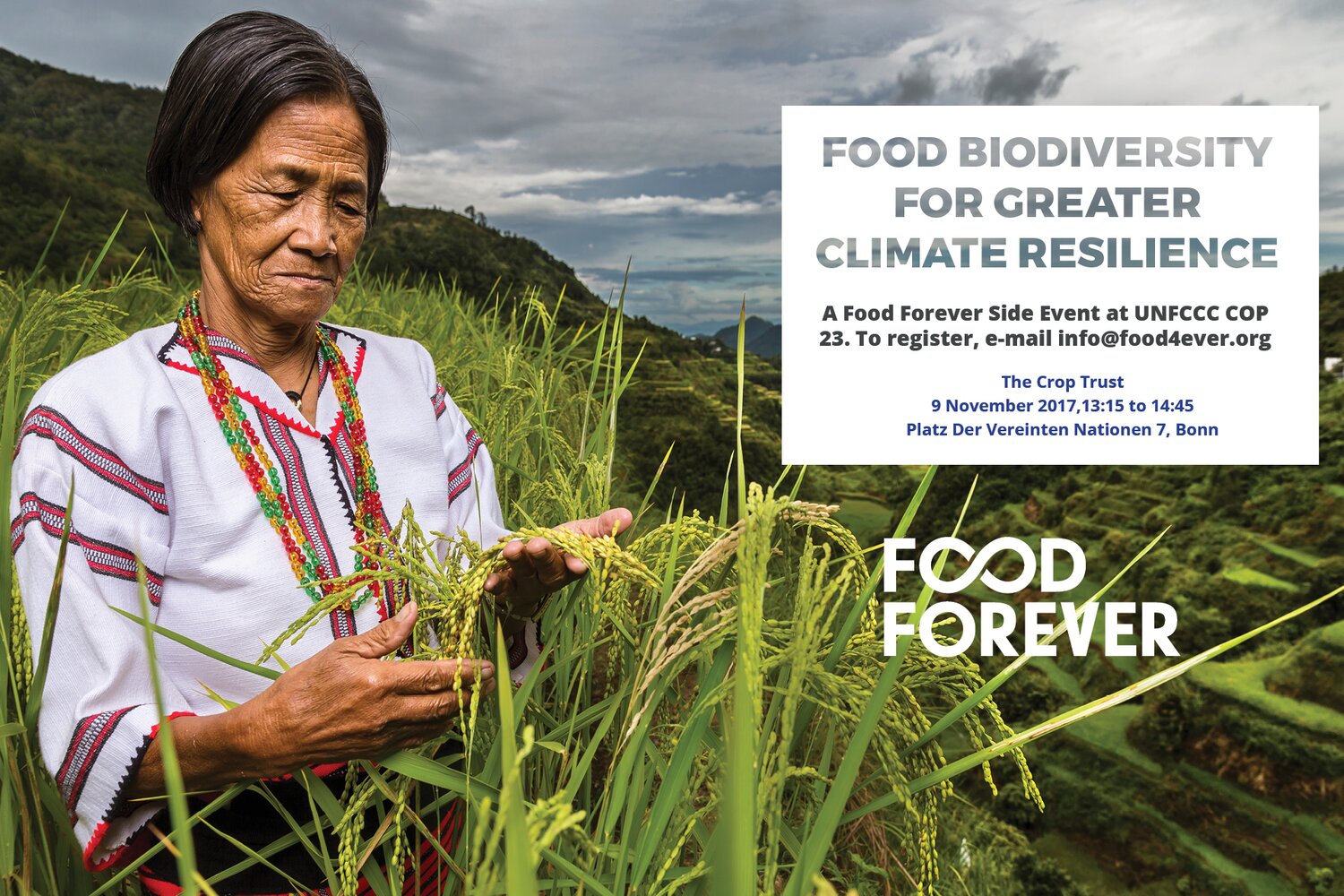
It is important to highlight the essential role that agricultural systems play in the global solutions to adapt to and mitigate climate change. The incredible amount of biodiversity in our food systems is one of the most valuable yet least recognized answers to this challenge. Through conventional breeding, we can use the diversity that exists within crop and livestock species to develop improved varieties and breeds to withstand higher temperatures, drought or new pests and diseases. This resource can also be used to breed crops that are able to help mitigate climate change by requiring less inputs, such as nitrogen-based fertilizers, or that can serve as carbon sinks. These are just a few examples. The event will feature a set of introductory presentations and a moderated panel discussion that will focus on how we can respond to climate change while striving to ensure food, forever.
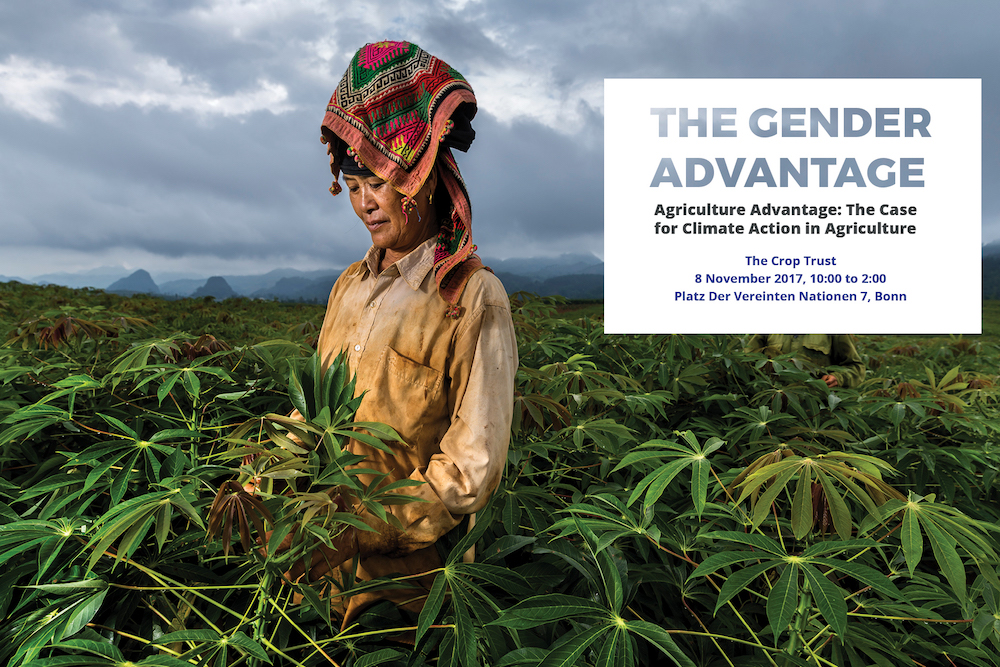
The Adaptation for Smallholder Agriculture Programme (ASAP), a global programme of the International Fund for Agricultural Development (IFAD), is the world’s largest climate change adaptation programme focused on smallholder farmers, which invests more than USD 300 million in more than 30 developing countries to increase the resilience of at least eight million smallholder farmers to climate-related shocks and stresses. ASAP captures lessons from its efforts and addresses its knowledge needs through a Learning Alliance with the CGIAR Research Program on Climate Change, Agriculture and Food Security (CCAFS). A key focus of the Alliance, in partnership with CARE International has been to generate lessons on integrating gender in adaptation projects with smallholder farmers. This event will share lessons generated, provide guidance to implementers, and set out a research and action agenda for further work in this area.
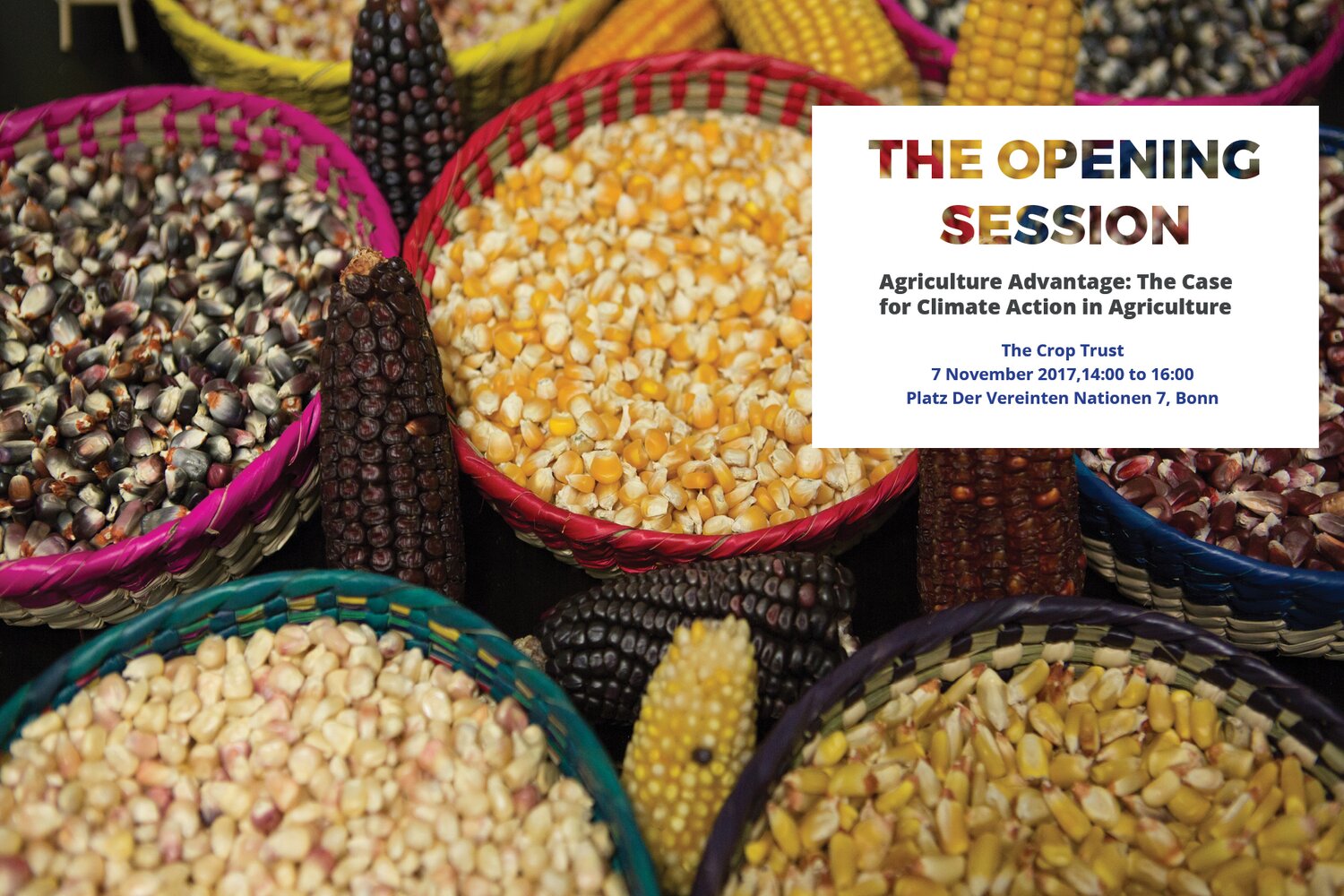
Most developing countries have emphasised agriculture in their NDCs. Adaptation is the priority, but many countries include mitigation actions as well. With the Green Climate Fund (GCF) and other agencies making large allocations to agricultural actions, it is opportune to rethink agricultural development, so that public investments can leverage much larger private sector investments. This event aims to contribute to shifting agricultural development from business as usual. Crop Trust Director of Science and Programs, Luigi Guarino, will give the welcome and provide an introduction to speakers.
Category: Climate Change
